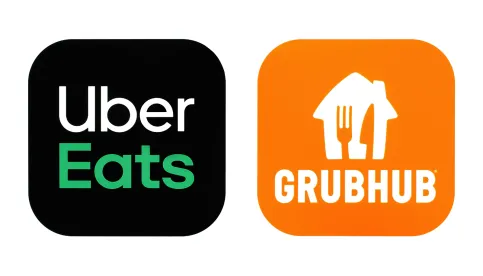In a recently published opinion,[1] the Superior Court of New Jersey Appellate Division answered a question of first impression: whether the New Jersey Transportation Network Company Safety and Regulatory Act (the “Act”), which requires “transportation network companies”[2] to provide at least $1.5 million in underinsured motorist insurance coverage, applies to food delivery services such as Uber Eats.
The case arose after an Uber Eats driver was injured while operating his motorcycle during a delivery. A car collided with the Uber Eats driver, who was thrown from his motorcycle, sustaining serious injuries. The Uber Eats driver’s injuries exceeded the limits of the other motorist’s insurance coverage. The Uber Eats driver was employed by Portier, LLC, a wholly-owned subsidiary of Uber, which had a business auto insurance policy with James River, however the James River policy did not provide underinsured motorist coverage.
The Uber Eats driver filed suit against Portier and James River, alleging that at the time of the accident, the Uber Eats driver was employed by Portier and entitled to underinsured motorist benefits under the Act. The trial court granted summary judgment in James River’s favor, ruling that the Act only regulates companies and drivers that provide transportation for passengers, as opposed to food.
On appeal, the Superior Court reviewed the terms and definitions of the Act, noting that nothing in the Act or its definitions made any reference to food delivery services. It further noted that the Act’s insurance requirements applied only when a “‘transportation network company driver is providing a prearranged ride,’ thereby relying on the Act’s precise and unambiguous definitions of the terms ‘transportation network company driver’[3] and ‘prearranged ride.’” “Prearranged ride” was defined as transportation by a transportation network company driver, beginning when a driver accepts a ride request by a rider. The Superior Court ruled that the plain text of the Act, as currently written, does not cover drivers that are delivering food.
Notably, the Court pointed out that a current proposed change to the Act would require insurance coverage for businesses that use a digital network to connect customers to a “delivery network company driver for the prearranged delivery of goods.” The proposed legislation was introduced earlier this year and is currently still under committee review.
FOOTNOTES
[1] Scott C. Malzberg v. Caren L. Josey et al., case number A-2883-20, in the Appellate Division of the Superior Court of New Jersey.
[2] “Transportation network company” means a corporation, partnership, sole proprietorship, or other entity that is registered as a business in the State or operates in this State, and uses a digital network to connect a transportation network company rider to a transportation network company driver to provide a prearranged ride. . . .
[3] “Transportation network company driver” or “driver” means a person who receives connections to potential riders and related services from a transportation network company in exchange for payment of a fee to the transportation network company, and uses a personal vehicle to offer or provide a prearranged ride to a rider upon connection through a digital network controlled by a transportation network company in return for compensation or payment of a fee.





 />i
/>i

